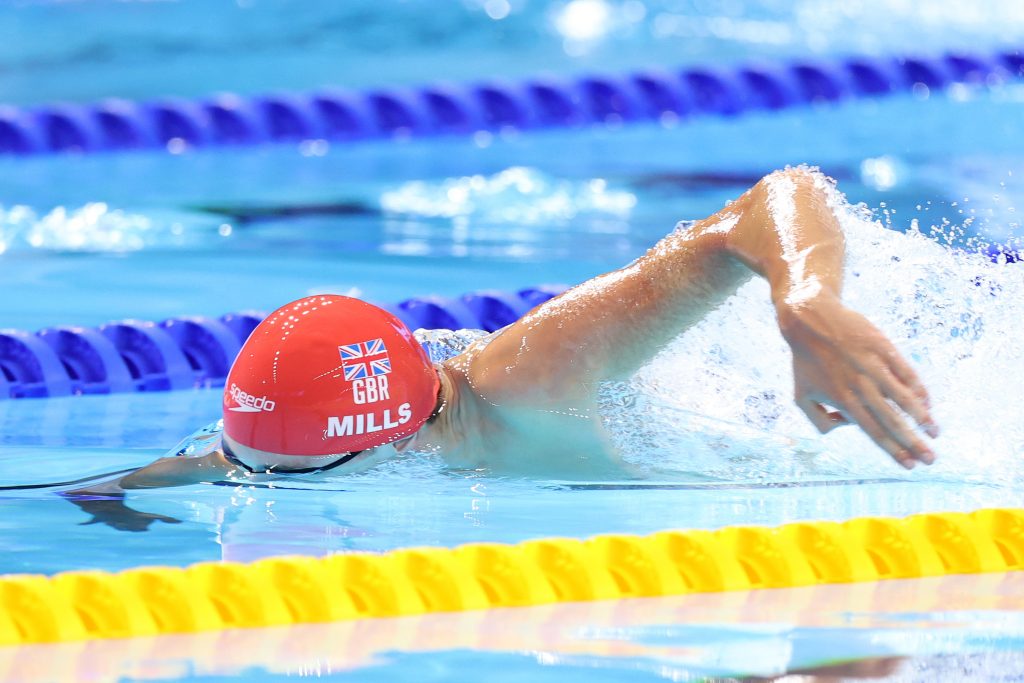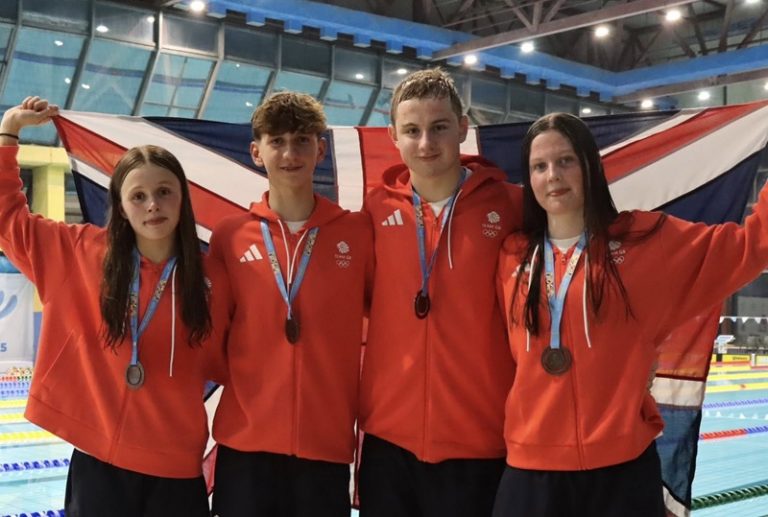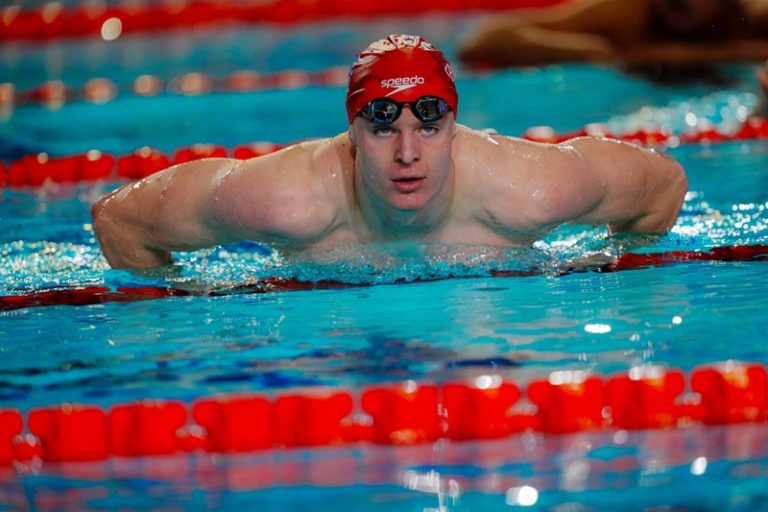The opening day of the 2025 World Junior Swimming Championships in Otopeni, Romania, offered an early glimpse of Britain’s ambitions at this year’s competition. A relatively small squad in terms of numbers, but one carefully built around the very best junior talents available, Team GB made a statement from the outset. Medals, personal bests and strong progression into later rounds provided the perfect start for a team eager to build on the momentum created at last year’s European Junior Championships.

From the morning heats, the signs were positive. In the women’s 50m breaststroke, Theodora Taylor secured fourth place in her heat with a time of 31.23, moving confidently through to the semi-finals. Over the gruelling 400m individual medley, Amalie Smith looked solid, clocking 4:42.29 to reach the final — a time that left room for improvement given she arrived in Romania with a lifetime best of 4:37.02. On the men’s side, breaststroke quickly emerged as Britain’s strongest discipline of the day. Rising star Filip Nowacki touched second in his 100m heat in 59.84, while teammate Max Morgan also progressed in tenth with 1:01.08. Later in the morning, it was the turn of the relays to highlight the depth of British talent. The men’s 4x100m freestyle quartet of Jacob Mills (48.17), Gabriel Shepherd (49.04), Harry Milne (49.77) and Rio Daodu (49.60) powered their way to the fastest overall time in qualifying, raising hopes of a podium finish later in the evening. Elsewhere, Daniel Ransom and Daodu narrowly missed out on the semi-finals of the men’s 100m backstroke, placing 17th and 18th respectively, while Blythe Kinsman ended 22nd in the women’s equivalent — though she is expected to be far more competitive when the 50m distance comes around.
A near-perfect evening for the british team !
If the heats had hinted at promise, the evening session delivered in style. The headline performance came from Amalie Smith, who produced a race of breathtaking drama in the women’s 400m individual medley final. At the halfway mark she was languishing back in fifth place, nearly six seconds adrift of the leader, and appeared to be well out of medal contention. Yet what followed was nothing short of extraordinary. Smith unleashed a blistering breaststroke leg, splitting 1:16.2 for the third 100m — a split faster than any breaststroke section recorded even at last summer’s senior World Championships in Singapore. It was not only the standout split of this junior final, it outpaced every swimmer’s back half from Singapore, underlining just how remarkable the effort was.
The effect was transformative. Smith surged through the field, her relentless pace shredding the deficit until she emerged as the clear silver medallist at the wall. Her final time of 4:35.49 was sensational — five seconds clear of the rest of the field and a new lifetime best by more than a second. It also propelled her to fourth on the all-time British rankings, placing her among some of the finest medley swimmers the country has ever produced. Beyond the medal itself, the manner of the performance confirmed her as one of the breakthrough names of the championships, and a serious prospect for senior honours in the years ahead.
Earlier in the session, Theodora Taylor had also impressed by booking her spot in the 50m breaststroke final. Third in her semi-final with a time of 31.27, she qualified sixth overall for tomorrow’s showpiece and only half a second off top spot, in what looks to be one of the most closely-contested events of the programme. Yet once again it was in men’s breaststroke that Britain had most to celebrate. Filip Nowacki, already touted as one of the leading names of his age group, dominated his semi-final to win in a new personal best of 59.24, confirming his place as a major medal contender. In the same race, Max Morgan also raised eyebrows, smashing through the one-minute barrier for the first time in his career. His 59.93 not only earned him third place in the semi-final but also booked him a lane in the final as the fourth-fastest qualifier. With Nowacki leading the field and Morgan not far behind, Britain suddenly finds itself boasting two genuine podium threats in an event traditionally dominated by other nations. Given the looming retirement of the legendary Adam Peaty, the timing could not be more encouraging for British men’s breaststroke.
Not everything, however, went to plan. The men’s 4x100m freestyle relay, having stormed the heats as fastest qualifiers, could not replicate their earlier speed in the evening final. Mills gave the team a dream start, handing over in the lead after a blistering opening leg, but as the race unfolded Britain’s advantage ebbed away. Italy, the United States and, most decisively, the Russians (competing under a neutral banner) began to assert themselves. The Russian quartet ultimately took gold in a new junior world record, with Italy and the USA filling the other podium spots. Britain had to settle for fifth place, the quartet unable to match their morning splits — each swimmer marginally slower in the final than in qualifying. While a frustrating outcome, it nevertheless underlined the team’s ability to compete with the very best, and the experience will undoubtedly serve them well as the competition progresses.



